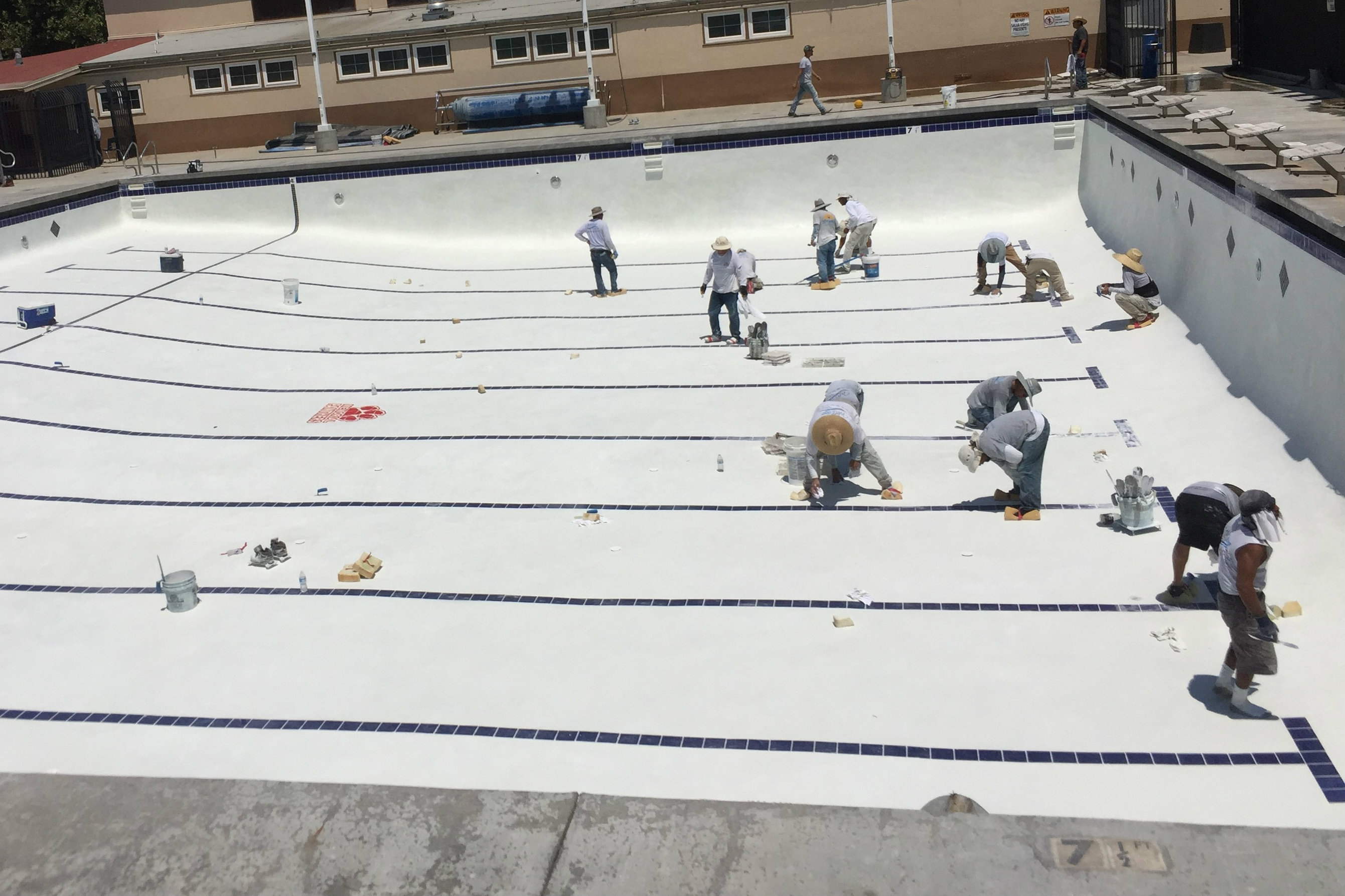The National Plasterers Council has released a second technical bulletin — this one addressing the white cement commonly used in pool/spa interior finishes. It was written in collaboration with the Portland Cement Association.
“This … pulls together years of trade and industry knowledge to explain critical elements of white cement and trade practices commonly used in the plastering of interior finishes for swimming pools,” said NPC of the four-page document.
NPC Technical Bulletin No. 5 explains chemical characteristics that distinguish white cement from the gray counterpart generally used in concrete. It goes on to suggest how these differences explain long-time NPC contentions about the use of a popular additive and supplementary mix water. The bulletin refers to a 50-year-old study sometimes cited by others to claim that the retarder calcium chloride can make plaster darker. NPC and PCA state that this study doesn’t apply to white cement products.
“There is very little risk of discoloration due to adding calcium chloride to white cement-based mixes, because white cement contains almost no ferrite,” the bulletin reads.
The document also states that CaCl₂ is not harmful to cementitious interior finishes such as plaster, if used properly. CaCl₂ can result in deterioration to concrete with metal reinforcement, the bulletin says, which plaster doesn’t contain. Kept to 2% or less of the cementitious binder, the accelerator does not degrade the finish or cause surface etching, it further said.
The paper characterizes unbalanced water chemistry as a leading cause of deterioration. “Good water chemistry, as per APSP and NPC, is the key to prolonging the life of the finish coating, and preserving the aesthetic beauty of the surface from etching deterioration, discoloration and mineral salt scale,” it read.
This makes two technical bulletins that the organization has released this year. The other addressed colored plaster and pigments. Tech Bulletin No. 5 represents the latest cross-association collaboration for the group, which also works with the Association of Pool & Spa Professionals, the American Concrete Institute, the American Shotcrete Association, ASTM, ANSI, the Northeast Spa and Pool Association and the Independent Pool and Spa Service Association on various technical and educational materials and programs.

